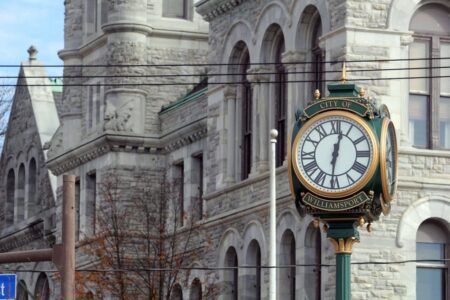Lycoming County commissioners reconsidering details of tax abatement program, LERTA
Lycoming County commissioners offered their rationale why they did not vote in favor of renewing a 10-year residential Local Economic Revitalization Tax Abatement (LERTA) with some Williamsport officials reacting.
Their decision was made during a commissioners’ meeting on May 29. LERTA, meanwhile, for the layperson, is a statewide program designed to encourage residential redevelopment by authorizing local taxing authorities (municipalities, school districts and counties) to provide a tax exemption, but only on the “increase in assessed value of properties due to improvements made within designated LERTA districts.”
When eligible properties within these districts are improved through new construction, rehabilitation, or renovations, they are typically reassessed to reflect the increased value. The original assessed value of the property or land is still subject to taxation. There’s 100% tax abatement for the first year, with gradual decreases each year in the LERTA.
In a conference call with the Sun-Gazette, Commissioners Scott Metzger, Marc Sortman and Mark Mussina said they are not opposed to the program and were willing to discuss an agreement that is more “logical,” and does not stretch over a 10-year period.
“Ten years is too long,” Metzger said, adding the commissioners had discussions ahead of the vote to renew and considered whether to re-examine it.
Sortman added there were aspects of the LERTA, as written, that are not representative of the county as a whole and offer an “unfair advantage” to certain communities by not speaking to the true purpose of the residential tax abatement, which is to incentivize redevelopment of aging and deteriorating properties.
Any future agreement should be more equitable, he said, adding he would be willing to re-examine another proposal with different language.
“We are willing to meet again for a better agreement,” said Mussina, whose background is in real estate.
“They only spent about 30 seconds on it from what I saw, so I am not sure they realized their vote caused the (Williamsport Area School District) residential LERTA to end as well,” said city Treasurer Kevin Mackey.
“This caused the school LERTA to lapse automatically due to how their resolution was written (i.e. if either the City or County did not renew, then theirs would not either), Mackey said.
Mackey added the program works best when all of the taxing bodies are in coordination with each others’ actions.
LERTA incentivizes the redevelopment of aging and deteriorating properties, and the city has multiple homes – some of them over a century old and others in complete disrepair – the owners of these properties would be likely to invest in the real estate with the tax abatement in place, Mackey said.
Such investment in housing stock results in new properties, renovated houses and residential structures – which would last for decades rather than allowing the deterioration of older housing stock to proliferate.
“It is vital for attracting new residents to the city,” Mackey said.
It also increases sales tax collection, because by incentivizing property owners to improve their housing stock it means there is likely going to be more people who move into a municipality, which means spending increases at the shops, stores, restaurants and entertainment settings.
Separately, Mackey observed how the successful “commercial LERTA” in place in Williamsport, which is for two years, was one reason why the city is seeing economic development of Maynard Commons – which has a Wawa and soon will see the opening of Chick-fil-A.
“We’ve always thought this LERTA would be so important, and it’s always been pushed to the side and we never did get any kind of feedback of what we really wanted with this,” said Councilwoman Bonnie Katz, chair of the public works committee.
“Hopefully, maybe, we can change their minds,” Katz said.






